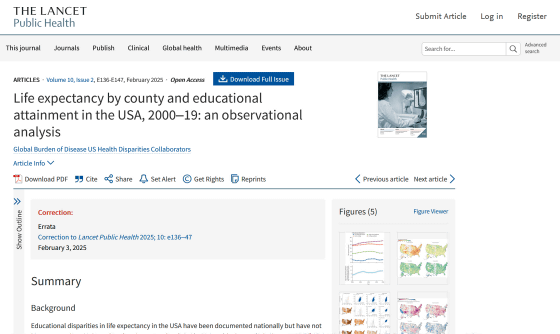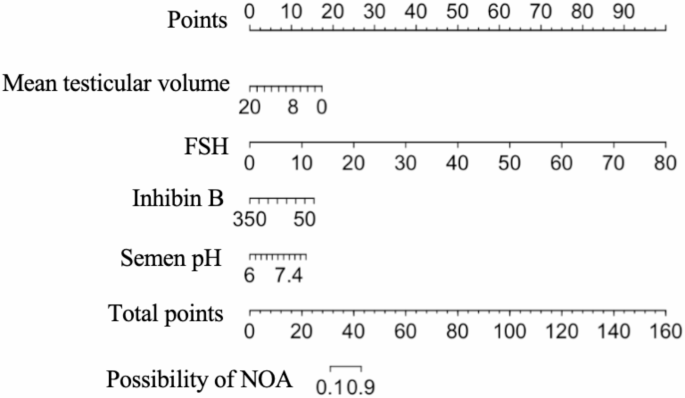Research results announced that ‘college graduates live about seven years longer than high school graduates’


Previous research has shown that
wealth disparities and where you live have a significant impact on life expectancy. A new study that looked at the differences in educational attainment and life expectancy in various counties in the United States revealed that people with college degrees live significantly longer than those with only high school degrees.
Life expectancy by county and educational attainment in the USA, 2000–19: an observational analysis – The Lancet Public Health

Study: College Graduates Live a Shocking 11 Years Longer Than Those Who Never Finish High School
https://scitechdaily.com/study-college-graduates-live-a-shocking-11-years-longer-than-those-who-never-finish-high-school/
It is known that educational background is an important social determinant that affects people’s occupations, economic situations, health, etc. Recently, a team from the Institute for Health Metrics and Evaluation (IHME) , a research institute at the University of Washington in the United States, investigated life expectancy by educational background from 2000 to 2019 in 3,110 counties in the United States.
The survey categorised people’s educational background into four categories: those who did not graduate from high school (equivalent to a junior high school graduate), those who graduated from high school (equivalent to a high school graduate), those who received a college education but did not graduate (equivalent to a college dropout), and those who graduated from college (equivalent to a college graduate), and estimated their life expectancy at age 25.
Analyzing the data, we found a trend in the United States overall that the higher the educational level, the longer the life expectancy. In the graph below, the vertical axis shows the estimated age of death (average life expectancy) at age 25, and the horizontal axis shows the time progression from 2000 to 2019. As the educational level increases from ‘junior high school graduate equivalent’ shown by the blue line, to ‘high school graduate equivalent’ shown by the green line, to ‘college dropout equivalent’ shown by the red line, to ‘college graduate equivalent’ shown by the purple line, we can see that the average life expectancy is clearly longer.
The average life expectancy of college graduates increased by 2.5 years from 2000 to 2019, reaching 84.2 years, while the average life expectancy of college dropouts increased by 0.7 years to 82.1 years during the same period. Meanwhile, the average life expectancy of high school graduates only increased by 0.3 years during the same period, remaining at 77.3 years as of 2019, while the average life expectancy of junior high school graduates did not increase during the same period and remained at 73.5 years. In other words, as of 2019, there was a disparity in which ‘college graduates live about 7 years longer than high school graduates and about 11 years longer than junior high school graduates.’
The graph below shows the difference in life expectancy between university graduates and junior high school graduates, with the vertical axis showing the age difference in life expectancy and the horizontal axis showing the time progression from 2000 to 2019. As of 2000, the life expectancy gap was about 8 to 9 years, but it has gradually increased and is now about 11 years in 2019.

In addition, there was a large variation in life expectancy across counties, with the combined life expectancy range of 68.2 to 93.2 years for all educational groups. The variation across counties was greatest for those with a junior high school education (57.9 to 90.1 years) and smallest for those with a college education (75.2 to 93.9 years).
‘In the United States, people with more formal education often have better employment opportunities, including jobs with fewer health risks and higher wages, so they can live healthier lives and have access to better health care when they need it,’ said Associate Professor Laura Dwyer Lindgren, senior author of the paper.
link






